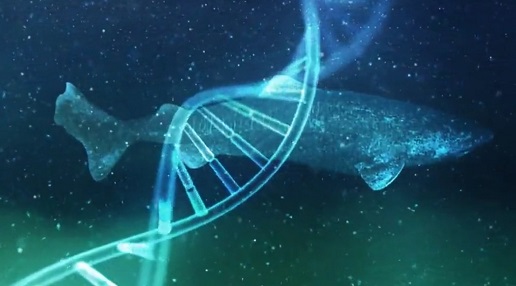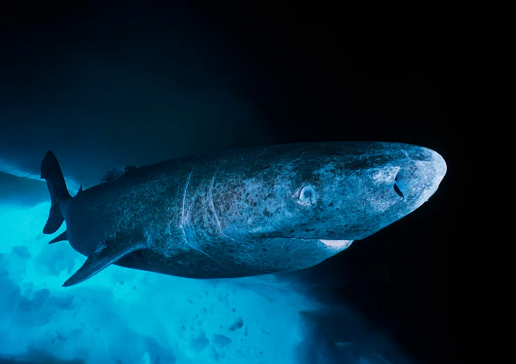The Greenland shark, known for its extraordinary longevity, has captivated scientists aiming to unravel its secrets. These deep-dwelling Arctic and North Atlantic creatures, some possibly over 400 years old, are now the focus of groundbreaking genomic research. An international team has sequenced 92% of the shark’s genome, uncovering unique traits linked to its exceptional lifespan. Notably, its genome is double the size of a human’s, with DNA repair mechanisms likely contributing to its slow aging and resilience against genetic mutations.
The shark’s genome contains 70% “jumping genes,” which in other species may cause harm, but in Greenland sharks, appear to enhance DNA repair and longevity. Researchers speculate this evolutionary adaptation prevents damage and bolsters genomic integrity. By comparing its genome with other species, scientists hope to further understand these mechanisms. The Greenland shark, shown in a visualization, can live to be around 400 years old, 2016 research estimated. Now, scientists are studying its genome to understand how. Photo illustration: CNN/NOAA/Adobe Stock
The Greenland shark, shown in a visualization, can live to be around 400 years old, 2016 research estimated. Now, scientists are studying its genome to understand how. Photo illustration: CNN/NOAA/Adobe Stock
Greenland sharks, growing less than 1 cm per year and maturing after a century, offer insights into the biology of aging. Their genome may inform broader strategies for DNA repair and anti-aging technologies in humans. Studying these sharks, which can live over 500 years, could reveal tools to extend human health spans, particularly through understanding their DNA repair processes and tumor suppression abilities. This research opens doors to potential therapeutic applications, offering a glimpse into prolonging vitality across species.







